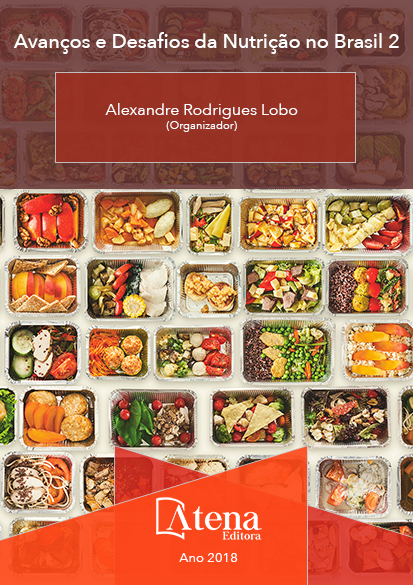
EFEITO DA ESTOCAGEM NO CONTEÚDO DE POLIFENÓIS E NA ATIVIDADE ANTIOXIDANTE DE SUCOS DE AMORA E DE FRAMBOESA
Evidências científicas indicam o
consumo de frutas na promoção da saúde, como
excelentes fontes de nutrientes e compostos
bioativos, fatores que evitam o dano oxidativo e
conferem benefícios à saúde humana. A amora
(Rubus fruticosus) e a framboesa (Rubus idaeus
L.) são frutas com propriedades antioxidantes e,
por serem perecíveis, seu consumo em forma de
suco é uma excelente opção de aproveitamento
de suas qualidades nutricionais. Este estudo
objetivou quantificar os polifenois totais e avaliar
a atividade antioxidante in vitro destas frutas
pós-processamento na forma de suco ao longo
do tempo e em diferentes temperaturas de
armazenamento, a fim de propor uma cinética de
perda desses compostos por fatores oxidantes.
Para a quantificação de polifenois totais foi
utilizado o método de Folin-Ciocalteu e para
determinar a atividade antioxidante foi utilizado
o método de estabilização do radical ABTS+•.
As amostras de suco foram armazenadas à
temperatura ambiente (20°C) e sob refrigeração
(5°C), e analisadas em diferentes tempos de
exposição. Os resultados obtidos mostram que
o tempo e a temperatura de armazenamento
podem ter efeito sobre o conteúdo de compostos
bioativos. Para a determinação dos compostos
fenólicos e atividade antioxidante, independente
das temperaturas analisadas, houve uma
pequena redução a partir do tempo inicial para
os extratos de framboesa e de amora. Podese
concluir que o suco de amora e framboesa
não necessariamente precisam ser consumidas
imediatamente após o preparo, uma vez que
para essas frutas as perdas destes compostos
nos tempos avaliados foram pequenas,
sugerindo mais estudos nestas perspectivas.
EFEITO DA ESTOCAGEM NO CONTEÚDO DE POLIFENÓIS E NA ATIVIDADE ANTIOXIDANTE DE SUCOS DE AMORA E DE FRAMBOESA
-
DOI: 10.22533/at.ed.94918021228
-
Palavras-chave: Rubus Fruticosus; Rubus Idaeus L.; Antioxidante; Compostos fenólicos.
-
Keywords: Rubus Fruticosus; Rubus idaeus L.; Antioxidant; Phenolic Compounds.
-
Abstract:
Scientific evidence highlights fruit
consumption in health promotion because they are excellent sources of nutrients and
bioactive compounds, which prevent oxidative damage and confer benefits to human
health. The blackberry (Rubus fruticosus) and raspberry (Rubus Idaeus L.) are fruits
with antioxidant properties and because they are very perishable, its consumption in
the form of juice is an excellent option for the absorption of its nutritional qualities. This
study aimed to determine the total polyphenols and to evaluate the antioxidant activity
of these red fruits postprocessing in the form of juice over time and in different storage
temperatures in order to propose a kinetic of loss of these compounds by oxidant
factors. For quantification of total polyphenols it was used the Folin-Ciocalteu method
and to determine the antioxidant activity it was used the ABTS+• radical scavenging
method. Fruit juice samples were stored at room temperature (20°C) and refrigerated
(5°C), and analyzed at different exposure times. The results show that the exposure
time and temperature can have an effect on the content of bioactive compounds. For
determination of the phenolic compounds and antioxidant activity, regardless of the
temperatures analyzed, there was small reduction from the initial time for the extracts
of raspberry and blackberry. Thus, it can be concluded that the juice of the fruits
blackberry and raspberry does not necessarily need to be consumed immediately after
its preparation, since for these fruits the losses of these compounds in the evaluated
times were small, suggesting further studies in these perspectives.
-
Número de páginas: 15
- Aline Cattani


